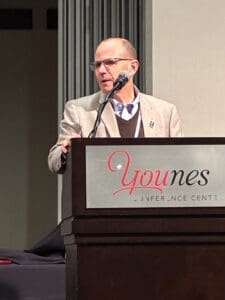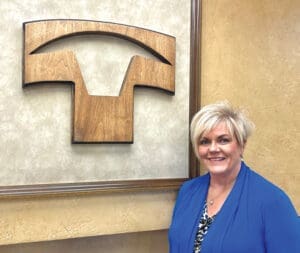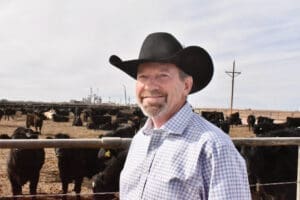By Patti Wilson, Contributing Editor
This month’s Chuteside Manner will digress from cattle health and focus on a dirty job. Specifically, I am talking about making wills, family transition of farms and dealing with heirs who have fled agriculture for a life in town.
To be clear, we will consider this a human health related article geared toward responsibility and satisfaction.
Having successfully crept up toward retirement age, I have buried my share of family. I have seen others do as much, and observed varied results, including contentment, backlash or controversy arising from folks who have either died with wills, or not. It is never, and never will be, anything but a controversial subject.
What’s prompted my outburst on these matters comes from the culmination of personal experience. My father was a kind man who always set a good example for his family. I realized after his passing that perhaps the finest thing he did for us was to have his business affairs in order at the time of his death. He had given us clear instructions on how to proceed without him, had a current will in place and, most important, told us not to be afraid. Let me add that this was all done long before he became ill.
His plans were followed explicitly until 11 years after his death; natural evolution of family circumstances led my sister and me to decide to “split things up.” It was an amicable decision, arrived upon by our family units.
That doesn’t mean it was easy
We worked and stewed for the better part of a year on how to make the split. Careful and repeated calculations were necessary, and always with our dad’s intent in mind. Things had to be equal, and things had to work long term. Having a sister with no agricultural interests was a factor, as was the fact that 10 family members had to sign off on all agreements. Me, my sister, our children and all spouses. Now, can you imagine getting 10 adults to agree on anything? We did, but it took several lawyer meetings, hours of phone calls and hundreds of miles on our vehicles. We are all still on good terms and doing well. I consider myself lucky for my extended family.
In the past several months, my husband and I made new wills. After Dad’s estate split was completed, we were frankly tired. I called it “lawyered out” and not anxious to dive into another legal project. But we did, however, and gratefully we are now current on business.
Why not?
Why don’t people make wills? First, we have to acknowledge our mortality. Then we have to accept it. Then, we have to work on unpleasant details that take a fairly large amount of time. It’s much easier to shove our decisions onto a surviving spouse and a probate court, but in my opinion, that’s a careless thing to do.
The state probate court will be happy to take a share of your estate to cover their expenses, and you don’t even get to say what happens to your assets. Yet, a large majority of people over the age of 30 don’t have wills, and fewer have any kind of estate plan in place.
Recognition of children with sweat equity in your farm or ranch can lead to anxiety among siblings who have left rural areas for a non-agricultural life. This is a real and crucial problem for almost every farm family, and one that is easily recognizable because of the volatility it creates. Fair does not always mean equal, but fairness should always prevail in estate planning.
Keep your business clean
Outdated agreements about land ownership, rental contracts (or rental property without contracts in place), excessive debt, potential lawsuits or tax problems can mess up your life. All these problems will follow your estate after you pass. Keep your business dealings clean and your heirs will thank you (posthumously).
Estate plans minimize taxation. I’m not quoting any tax laws here, but careful planning is important in order to keep your assets intact for the long run. Get a good lawyer for advice. Small estates benefit as well as large ones, so don’t neglect your plans just because you’re not a billionaire.
Respect your own life’s work
There’s a hefty chance that anyone reading this magazine is an admirably hard worker. Consider your own thoughts and wishes as they pertain to the long term. Every one of us wonders what the future will bring; with a will you can actually have something to say about it. Many couples don’t have children, so nieces and nephews, rural fire departments, churches, schools or other entities can benefit greatly when you use your imagination.
Tell your heirs
Perhaps the most important point in this article is, don’t keep your will a secret. I have attended (or tolerated) several estate-planning meetings over the years and the best advice I’ve taken away from them came from a Nebraska Cattlemen’s Convention Cattlemen’s College. We were told that family conflict over estates is most often caused by the element of surprise, when unforetold wills are suddenly dumped on the kitchen table after a funeral. At that point, heirs find out, perhaps, that “fair is not equal” (a very controversial idea to some).
The bereaved are also emotionally drained and physically exhausted. Getting a surprise in a will at this point is only a sign of disrespect from the deceased. Chaos often ensues.
As a result of this valuable information, my husband and I made copies of our new wills and sent each of our daughters her own to keep. As of this writing, we haven’t heard any complaints.
Just do it
We have all seen estates tied up in court for years. Bankruptcy lawyers, unhappy children and meddlers of all kinds can rob your entire life’s work under the right circumstances. Some estates aren’t settled until legal and court costs eat them up in their entirety. The ranch we’ve lived for the past 20 years is a good example. A combination of no will, the bankruptcy of an heir and prolonged probate court robbed a nice family of their place. I think of them often and sadly.
Take care of your business, yourself and be kind to your family. Let me tell you from firsthand experience, keep a will and you’ll feel like a better person.





